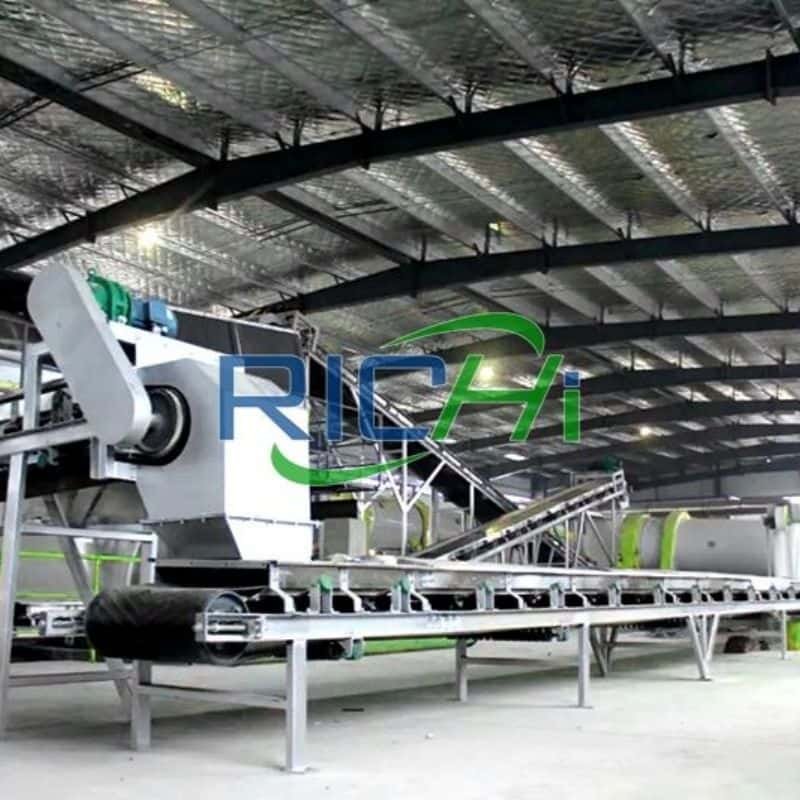The use of biomass materials in the production of organic fertilizer pellets has gained significant traction in recent years due to its numerous advantages. This article explores the key benefits of incorporating biomass into organic fertilizer pellet production, highlighting why it’s becoming an increasingly popular choice for sustainable agriculture.
- Sustainable Resource Utilization
One of the primary advantages of using biomass in organic fertilizer pellets is the sustainable use of resources:
- Waste Reduction: Biomass often comes from agricultural, forestry, or industrial waste, turning what would be discarded materials into valuable fertilizer components.
- Circular Economy: This approach promotes a circular economy model, where waste from one process becomes a resource for another.
- Reduced Environmental Impact: By utilizing waste materials, the demand for virgin resources is decreased, lowering the overall environmental footprint of fertilizer production. (Related post:bio fertilizer plant project cost )
- Enhanced Soil Health
Biomass-based organic fertilizer pellets offer significant benefits to soil health:
- Organic Matter Addition: These pellets increase the organic matter content in soil, improving its structure, water retention capacity, and overall fertility.
- Microbial Activity Promotion: The organic components in biomass stimulate beneficial microbial activity in the soil, enhancing nutrient cycling and plant health.
- Slow-Release Nutrients: Biomass materials often release nutrients slowly, providing a steady supply to plants over an extended period.
- Improved Nutrient Balance
Biomass materials can contribute to a well-balanced nutrient profile in organic fertilizer pellets:
- Diverse Nutrient Sources: Different biomass materials bring various macro and micronutrients, creating a more comprehensive fertilizer.
- Customizable Blends: Manufacturers can blend different biomass sources to achieve specific nutrient ratios tailored to different crops or soil types.
- Micronutrient Enrichment: Many biomass materials are rich in micronutrients that are often lacking in synthetic fertilizers. (Related post:organic fertilizer pellet machine)
- Cost-Effective Production
Using biomass can lead to cost savings in fertilizer production:
- Low-Cost Raw Materials: Many biomass materials are available at low cost or even free as waste products.
- Reduced Processing Costs: Some biomass materials require minimal preprocessing before incorporation into fertilizer pellets.
- Local Sourcing: Using locally available biomass can significantly reduce transportation costs.
- Enhanced Pellet Quality
Biomass can improve the physical qualities of organic fertilizer pellets:
- Better Binding: Many biomass materials contain natural binders that improve pellet durability and reduce the need for artificial binding agents.
- Improved Moisture Retention: Certain biomass types can enhance the water-holding capacity of pellets, beneficial for both storage and soil application.
- Dust Reduction: Well-formed biomass-based pellets typically produce less dust during handling and application.
- Increased Market Appeal
Organic fertilizer pellets made from biomass often have higher market appeal:
- Eco-Friendly Image: Products using recycled biomass materials are attractive to environmentally conscious consumers and farmers.
- Organic Certification: Many biomass-based fertilizers can qualify for organic certification, opening up premium market segments.
- Local Production Story: Using local biomass sources can create a compelling narrative for marketing regionally-produced fertilizers.
- Adaptability to Various Crops
Biomass-based organic fertilizer pellets offer versatility in crop applications:
- Wide Crop Suitability: These pellets can be formulated to suit a broad range of crops, from grains to fruits and vegetables.
- Soil Type Adaptability: By adjusting the biomass blend, pellets can be optimized for different soil types and conditions.
- Long-Term Soil Improvement: Regular use of these pellets can lead to cumulative improvements in soil quality over time.
- Environmental Benefits
The environmental advantages of using biomass in fertilizer pellets are significant:
- Reduced Carbon Footprint: By utilizing waste materials and potentially replacing synthetic fertilizers, the overall carbon footprint of agriculture can be reduced.
- Biodegradability: Biomass-based pellets are fully biodegradable, leaving no harmful residues in the soil.
- Water Quality Protection: The slow-release nature of these pellets can reduce nutrient runoff, protecting water bodies from eutrophication.
- Energy Efficiency in Production
The production of biomass-based organic fertilizer pellets can be energy-efficient:
- Lower Processing Energy: Compared to synthetic fertilizer production, biomass-based pellets often require less energy to manufacture.
- Potential for Renewable Energy Use: The production process can potentially utilize renewable energy sources, further enhancing sustainability.
Conclusion
The advantages of using biomass materials in organic fertilizer pellet production are multifaceted, encompassing environmental, economic, and agronomic benefits. From sustainable resource utilization and enhanced soil health to cost-effective production and improved product quality, biomass-based organic fertilizer pellets offer a compelling solution for modern agricultural challenges.
As the world increasingly focuses on sustainable and circular economy practices, the use of biomass in organic fertilizer production represents a significant step towards more environmentally friendly and efficient agricultural systems. By turning waste into valuable soil amendments, this approach not only addresses waste management issues but also contributes to improved crop yields and long-term soil health.
The versatility, cost-effectiveness, and environmental benefits of biomass-based organic fertilizer pellets make them an attractive option for farmers, gardeners, and agricultural businesses alike. As research and technology in this field continue to advance, we can expect even more innovative uses and benefits from biomass in organic fertilizer production, further cementing its role in sustainable agriculture.
For details please contact: pellet machine
WhatsApp:86 138 3838 9622
Email:enquiry@richipelletmachine.com



